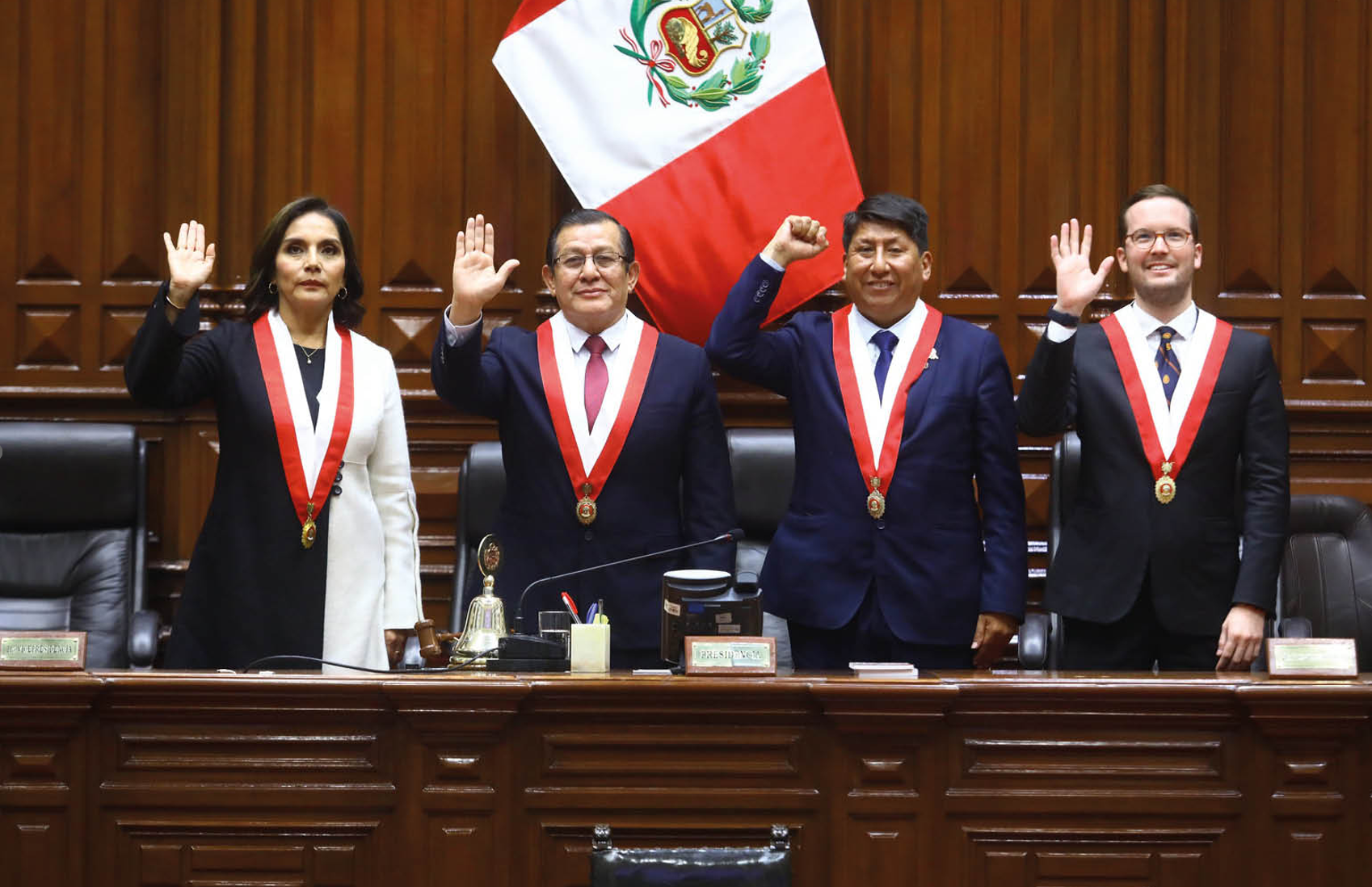He Congress of the Republic approved more setbacks than advances, from which a few succeeded (some more dangerous than others), to the detriment of the country’s institutions and the majority of Peruvians. It is true that not everything has been disappointment, but even the good things were accompanied by ‘traps’ that, hidden and camouflaged like the small letters of a contract signed with a cartoonish villain, turned potentially positive initiatives into the type of laws to which we Parliament is used to.
Such is the case of the rules for the election of the next bicameral Congress. The autograph contains positive changes, such as the election of half of the Senate through a single national electoral district, where the candidates will be part of a single list, regardless of the region from which they come. Likewise, electoral alliances will not have to reach as many votes as before to be able to access Congress, and starting with the next elections the JNE will increase the number of seats in both chambers, in order to try to mitigate the serious problem of political underrepresentation in the country. However, in the ruling it was ‘smuggled’, for example, with the increase in the maximum number of guests that the parties and movements can bring to the regional elections, which allows candidates who are not affiliated with the organizations to apply for governorships and mayorships. policies they represent.
Similar is the case of the new Law on Special Economic Zones (SEZ). The standard creates the theoretical framework that implements a special tax regime to encourage large investments. More than important regulations if we take into account the recent inauguration of Chancay or the existence of other projects, such as the Ancón Industrial Park. However, the complementary provision that created the SEZ in Chancay was voted separately and did not find consensus.
On the other hand, projects that can be classified from ‘counter-reforms’ to misfortunes were also approved. The limits of application of asset forfeiture were reduced, a legal mechanism that in the past had lent itself to abuse, but which is now susceptible to playing in favor of criminal organizations. Added to this are pure and simple populisms, such as the creation of 21 national universities in one fell swoop (in a single ruling) or the elimination of commissions for bank transfers and credit cards. Perhaps the most notable cases on this disastrous list are the new expansion of the Reinfo – which favors, in the vast majority, illegal miners camouflaged as informal miners – and the repeal of the figure of preliminary detention in cases where there is no flagrante delicto. The amendment of this last aberration has already been approved, but at the time of going to press it had not yet been promulgated by the Executive.
During the last hours of the last legislature, Congress ‘stood out’ both for its rejections and its omissions. The refusal that could bring with it the most damaging impacts for democracy in the next elections was the one that established impediments for criminals (sentenced and ‘rehabilitated’ for the commission of serious crimes, such as homicide) to apply for elected positions. In the vote on the so-called Antauro law, Fuerza Popular, which promoted the project from the Constitution commission, was conspicuous by its absence: only 7 of its 21 parliamentarians were present at the time of voting, which resulted in, with only With 65 votes in favor, the initiative (supported by 85% of citizens according to Ipsos) could not even be put to a referendum. Additionally, as if the electoral reforms could not matter less, the proposal that sought to reinstate the figure of private financing for political parties was never discussed in the Plenary.
The 20 hits
Now, to affirm that the bleak panorama is typical of this Congress would be as wrong as ensuring that the questionable and dangerous legislative production that has been talked about began to occur only in 2024. And, after the fall of Pedro Castillo , the right-wing bloc (majority in Congress) changed its strategy and stopped playing a role in opposition to the ‘professor’ government – one corrupt to the teeth, which ended up trying to carry out a coup d’état – in order to take advantage of the needs of the incoming Dina Boluarte, who needed to ingratiate himself with Parliament to survive and stay in power. Other parties eventually joined that car, including Perú Libre.
This is clear in the report prepared by the Transparencia Civil Association, which exhaustively analyzes 20 laws enacted between 2021 and 2024, which implied significant setbacks in essential sectors such as education, human rights, democracy and the fight against organized crime. For its secretary general, Omar Awapara, three legislative trends can be identified, aimed at concentrating power and neutralizing institutions that could pose a counterweight; approve laws that favor the interests of the parties and their members; and legislate in favor of informal and illegal interests, which are also those that are best represented in Congress.
The study not only includes regulations such as the one that limited the constitutional remedies that can be filed against arbitrary or irregular decisions of Congress, the one that modified the concept of a criminal organization and made the presence of those investigated in raids necessary, or the one that reinstated the public teaching career to ‘pulled’ teachers. It also graphs the support of the benches for the aforementioned projects, with the Fujimorista being the leader of the ranking (91%), followed by Renovación Popular (90%). Curiously, Perú Libre is further behind (72%), although this is due to the fact that it has simply not maintained its discipline at the time of voting; unlike Fuerza Popular, which usually votes as a bloc. Furthermore, it is not a minor fact that the coincidences between ideologically opposed parties occur, at least, in more than half of the votes.
Awapara, for its part, considers that the most harmful law on the list, in the short term, is the one that eliminated the PASO (primary, open, simultaneous and mandatory elections) because it will result in a “very complicated” election, which will have a negative impact on the future and governability in Peru starting in 2026. In the long term, however, he believes that the norm that establishes the statute of limitations for crimes against humanity means nothing more than a blow to a large part of the victims and “it makes the reconciliation process very difficult” that allows us to turn the page of history. Likewise, he maintains that, starting next year and with the elections just around the corner, the parties could begin to distance themselves, beginning to disagree more in the plenary session and clashing with the unpopular Government of Dina Boluarte.
Fasten your seatbelts, apparently 2025 will be a year of confrontations in the chamber, political control, and, of course, the old and reliable pre-electoral populism.
Take advantage of the NEW EXPERIENCE, receive our enriched digital newspaper by mail and WhatsApp. Peru21 ePaper.
Now available in Yape! Find us at YAPE Promos.
RECOMMENDED VIDEO
















